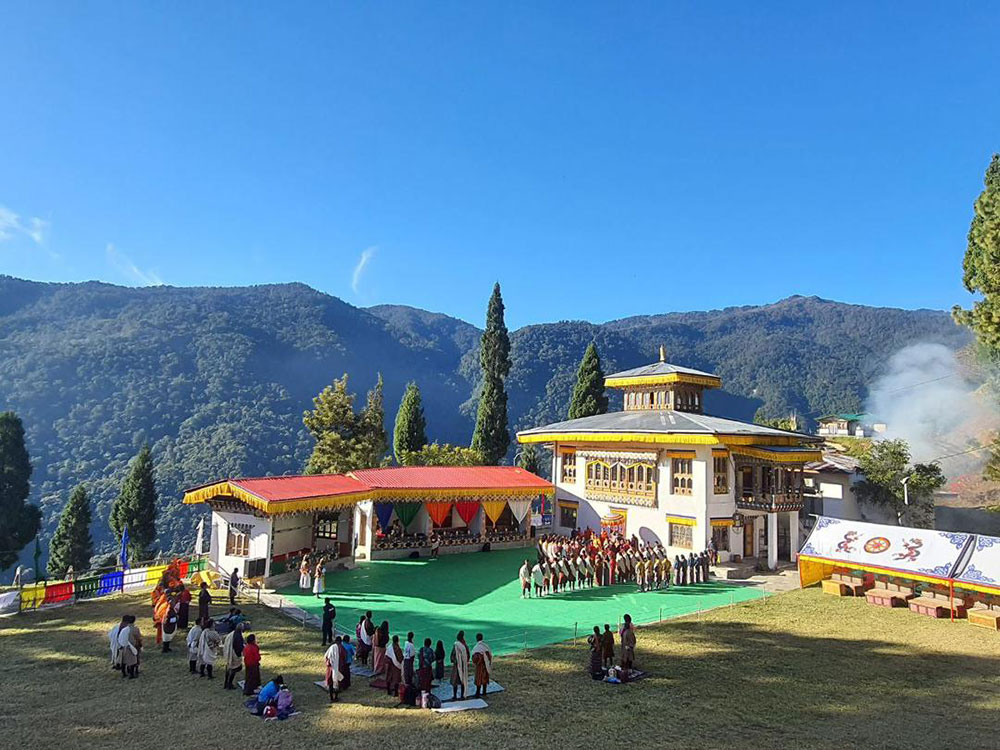Yangyel Lhaden
An official from Khebisa gewog Administration in Dagana performed the annual offering of grains to the dratshang day before yesterday, marking the commencement of the five-day Dagana Tshechu.
The offering of Dru Na Gu has historical roots as a rural taxation fee and is a cultural practice in the dzongkhag.
Dagana Drungchen Tshering Wangchuk said that the people’s contributions help the dzongkhag conduct various kurims and during the tshechu. “About five years ago, the Dratshang issued a kasho stating that offering is voluntary, not compulsory.”
Tshering Wangchuk said that a tradition strictly followed five years ago such as specific day and quantity for each household. However, with the dratshang now receiving government support for kurims, voluntary offerings have become the norm, motivated by the desire for positive merits.
Sonam Tshering from Dagana said that people set aside a portion of the first harvest annually to present to the Dratshang.
Ugyen Dorji, the tshogpa of Gibsa Chiwog in Khebisa, highlighted the enduring cultural practice of offering grains. He said that people remind him to collect their first harvest for the Dratshang, illustrating the cultural significance that has persisted for generations.
“It is a blessing and people’s tribute and reverence that the culture is still alive, and it is significant since we offer it during the Tshechu,” Ugyen Dorji said.
Dagana is believed to be protected by five deities—Aum Jomo Da Karmo, Phola Taktsha Gangbur, Shathongtshen, Gophu Kencho, and Molha Darayu Tsho.
The tshechu is dedicated to appeasing each local deity, with specific days allocated for each. “The highlight is the Shaw Sha Chi masked dance, which originated in Dagana and spread to other districts,” said Tshering Wangchuk.
The Tthechu concludes on December 26 with the unfurling of the Tempa Thongdrel.


